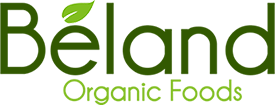Producing organic maple syrup involves the respect of the environment, trees and the ecosystem of the maple bush. Producing organic maple syrup also involves respecting organic certification standards in processing the sap:
- No chemical fertilizers, pesticides, phytocides, etc. are used in the maple bush or in the area where organic products are processed. If necessary, agricultural lime, wood ash or natural fertilizers may be used.
- There is a limit of three tapholes are done per tree. No over-tapping. No germicides (paraformaldehyde) in tapholes.
- Selective and correct use of vacuum tubing
- Avoid at all times frequent use of machinery to prevent injury to the surfaced roots.
Organic certification standards in the processing of the sap (Ecocert organic standards) :
- There is no lead or lead solder used in the equipment required for processing Canadian Heritage Organics – organic maple products – consequently, there is no lead in the finished product. Lead can be a concern with some conventional maple syrup producers using older equipment.
- During the running season, the line system must be cleaned with natural biodegradable products.
- No synthetic chemical products are used to control foam during boiling. Instead, certified organic and Montreal Kosher vegetable anti-foaming agent is used, such as safflower oil.
- No treatment of sap with ultra-violet radiation. No microwave cooking of processed organic maple products. The maple syrup is strained though a fine polyethylene membrane
- Maple syrup is stores in stainless steel, instead of galvanized steel drums.
- Each bottle of organic maple syrup is traceable. Using the lot #, one is able to determine the manufacturer is, and when the syrup was produced


